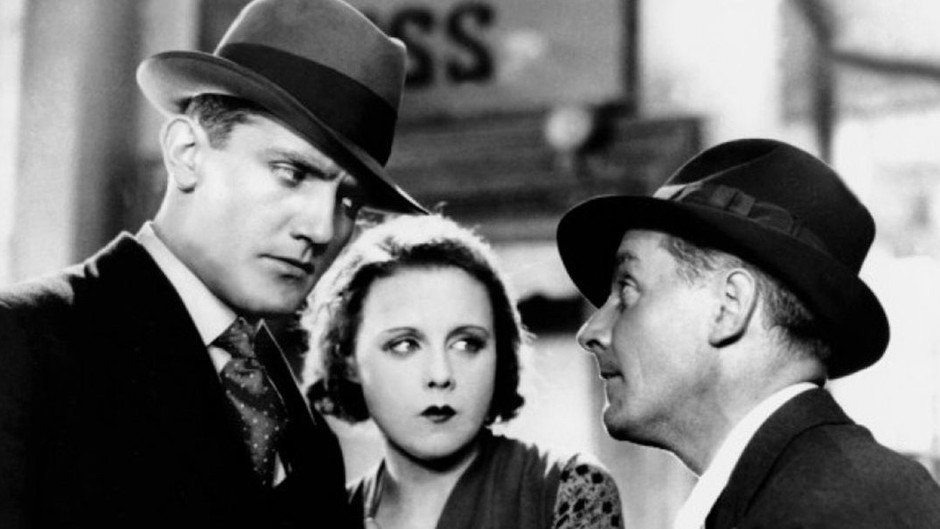Blackmail
(1929, score by Neil Brand, orchestrated by T. Brock, 2008)
Directed by: Alfred Hitchcock
Writing credits: Charles Bennett, Alfred Hitchcock, Benn Levy
Starring: Anny Ondra, John Longden, Sara Allgood, Charles Paton
Genre: thriller, drama
Country: U.K.
Running Time: 84 minutes
Instrumentation List
2 Flutes
2 Oboes
2 Clarinets
Alto Saxophone
2 Bassoons
4 Horns
2 Trumpets
2 Trombones
Tuba
Timpani
Percussion (2 players)
Harp
Celeste
Strings (10, 8, 6, 6, 4)
Scoring for Hitch by Neil Brand
“I believe that there is such a thing as a ‘Hitchcock score’, for all the fact that Hitch worked with numerous composers during his sound career. It’s a score heavily weighted towards the tonality of Bernard Herrmann and Miklos Rozsa, a textbook compendium of tension and thrill motifs which soars romantically in the love scenes with just a hint of warning that there may be no happy ending. This is the toolbox I raided when I embarked on this score for Blackmail and I have enjoyed it more than any work I have ever done before.
This is due to many factors – Timothy Brock is the collaborator of my dreams and a great part of any success this score may have is due to his extraordinary musicianship and enthusiasm. I have never scored a film for full symphony orchestra before and if the challenges were daunting, the opportunities were dazzling. The silent Blackmail is, for me, the greatest British silent film, a mature and adult drama and a more rewarding experience than its sound counterpart – understandably since Hitch was, by 1929, a master of the techniques of silent cinema. Sound made him a pioneer, albeit a hugely gifted one, in the new medium of hissing soundtracks and cut-glass accents. Blackmail is, moreover, a great British work of art in any medium, the most alluring and fearsome aspect of all in my attempting to score it.
The film is drenched in the character of London, my home town, and its peculiarly British (specifically English) attitudes, few of them particularly wholesome, all character quirks I grew up with and recognise. Hitch himself is an amalgam of a good Catholic’s attitude to sin (guilt and retribution) and a good Londoner’s attitude to crime (quiet fascination with those who effortlessly practise it and outright delight at those who stylishly get away with it) and Blackmail was, at this point in his career, his most definitive statement of his own character. He makes his musical requirements very obvious from beyond the grave, through masterly direction of the action. Like Hitch, I fell in love with Anny Ondra and tried to make the music complicit in her seduction (it’s that beautiful dress that gets her into trouble - in my score when she wears it she becomes Cinderella unaware she is about to be raped by Prince Charming) and I also tried to mirror Hitch’s love of London and its people, with the exception of its policemen.
For the first time in my life I have been in the same privileged position as my composition heroes – working with the best director in the business towards a classic romantic orchestral score in the old tradition, where tonalities seldom enter pure major or minor keys but lurch between the two, matching the characters’ flailing (and all too human) moral choices. As Blackmail delights in the grey areas of human behaviour, the score attempts to be equally alluring shades of grey. The music came with much hard work but great delight – mainly because of Maestro Brock’s care, patience and energy but also because of the giants on whose shoulders I was standing. Hitch, Herrmann, Rozsa and Waxman had done it all before and I had been listening to them all my life.
I am enormously grateful to the festival for giving me this wonderful opportunity in my 50th year and, coincidentally, for making Blackmail the first British silent drama to be newly scored for full orchestra since the advent of sound.”
